1. If you have any blood in your stool
 Image source: Reddit
Image source: Reddit
While the presence of blood can stem from various sources, ranging from minor issues like hemorrhoids to more serious conditions such as colorectal cancer, a colonoscopy serves as a critical diagnostic tool to identify the underlying cause. It allows healthcare professionals to visually inspect the entire length of the colon and rectum
2. Your poop has mucus in it
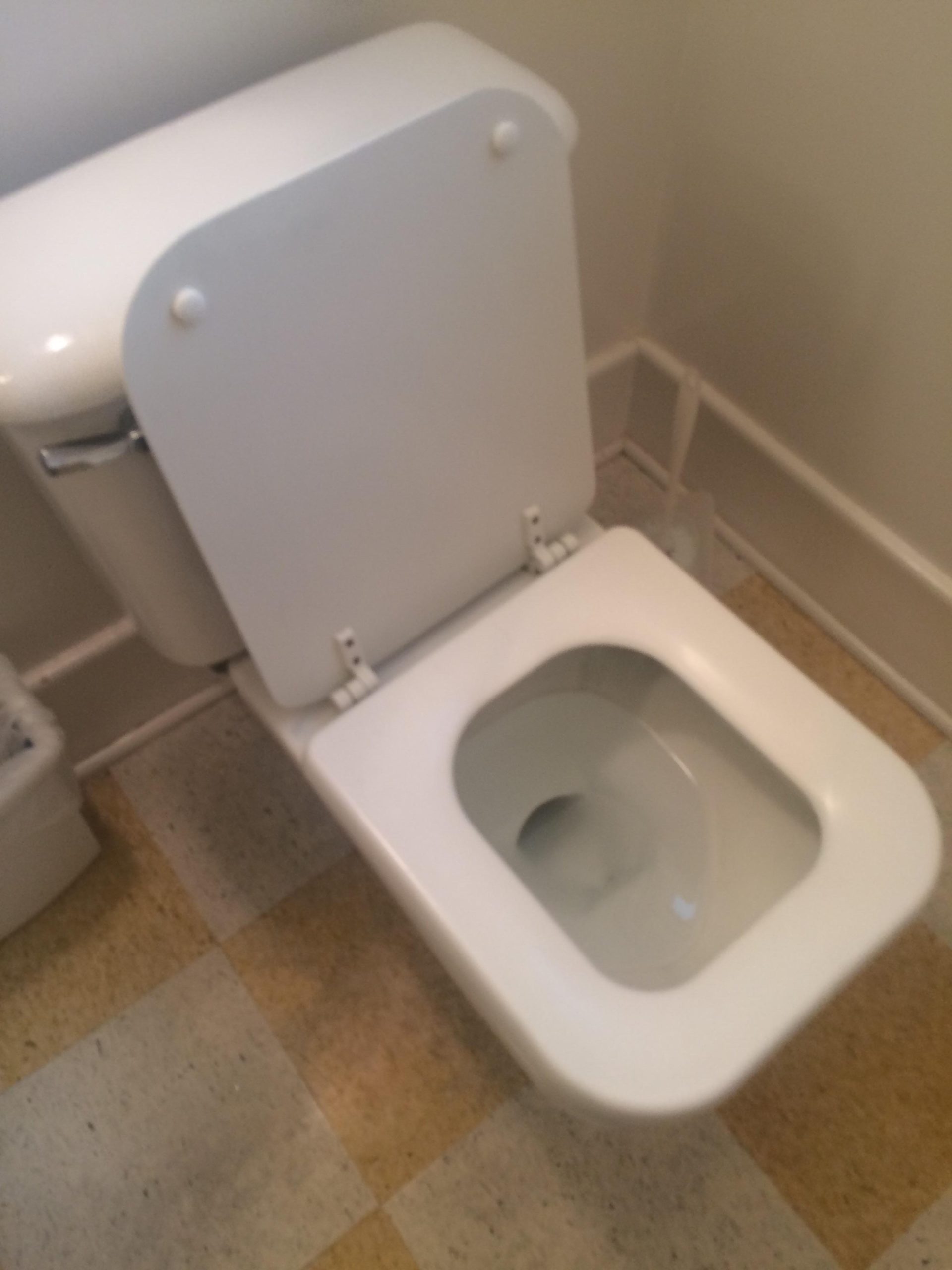
Image source: Reddit
If you've noticed the presence of mucus in your stool, it's a notable indication that your digestive system might be experiencing some issues. While it's not the most comfortable topic, addressing it is super important, and getting a colonoscopy is a prudent step.
3. When you're losing weight and you don't know why

Image source: Reddit
Losing weight in certain cases can be the intended outcome, especially when it aligns with your health and fitness goals. However, when those pounds start slipping away without a clear explanation, it can be concerning. Unintended weight loss may be a signal from your body, hinting that something is wrong.
4. You've got tummy pain
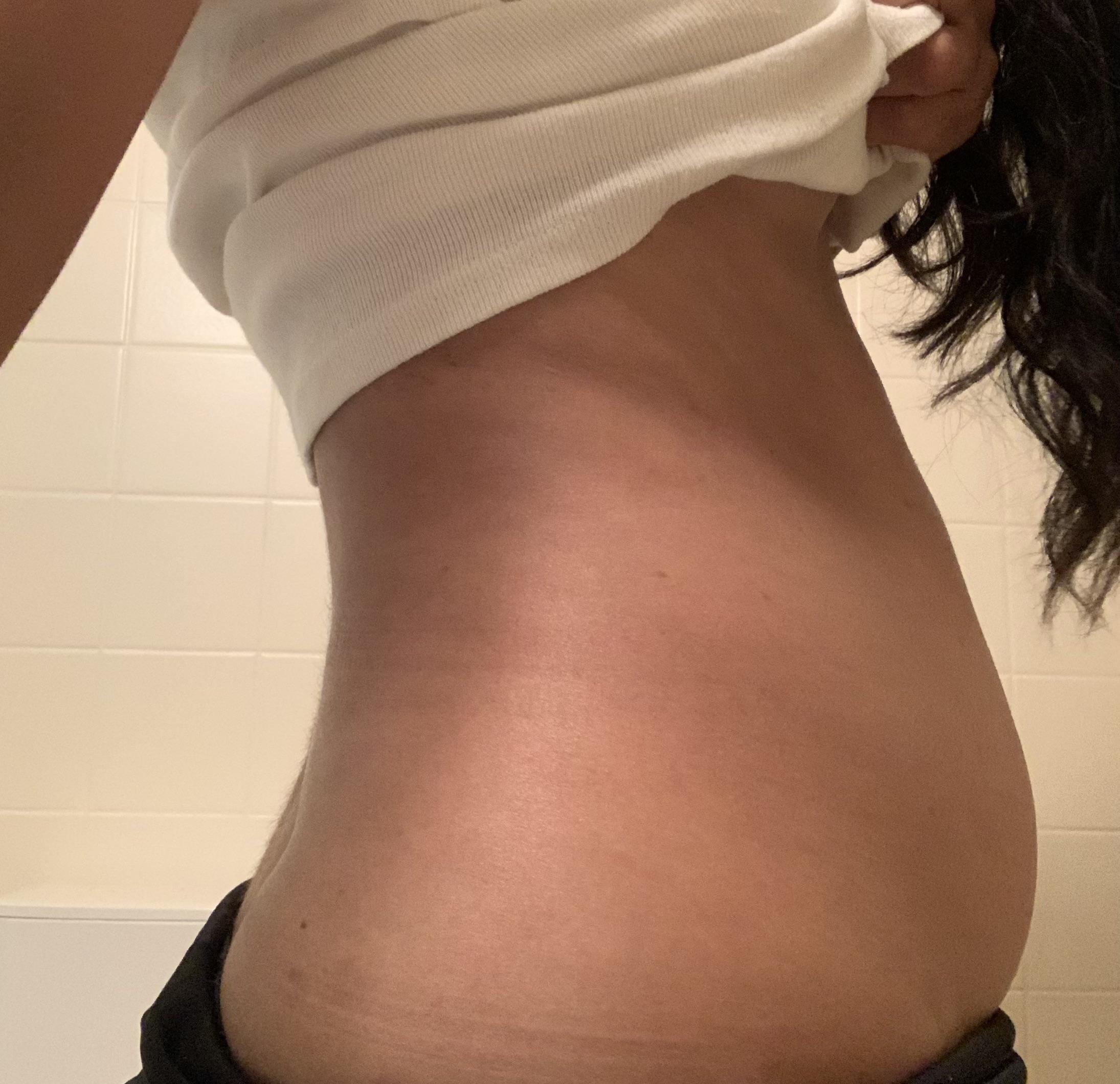
Image source: Reddit
In extreme cases, tummy pain could be a symptom of inflammatory bowel diseases such as Crohn's disease or ulcerative colitis. These conditions often involve inflammation of the digestive tract, and a colonoscopy can reveal the extent of inflammation, which can tell you how to treat it.
5. You feel like you need to release your bowels, but when you do the feeling doesn't go away

Image source: Reddit
Feeling the constant need to release your bowels, only to find that the sensation persists even after you've done so leaves you feeling confused and uncomfortable! The unrelieved feeling may signal serious gastrointestinal concerns, such as inflammatory bowel disease (IBD), or more common conditions such as irritable bowel syndrome (IBS).
6. You're super itchy down there

Image source: Reddit
Experiencing intense itching in the buttocks area is more than just an annoyance; it's a sign that you may need a colonoscopy. Persistent itching in this region could indicate various issues, ranging from skin irritations and allergies to fungal infections or hemorrhoids.
7. You've got pain in the pelvic area

Image source: Reddit
Persistent pelvic pain, especially when accompanied by changes in bowel habits or discomfort during bowel movements, should prompt consideration of a colonoscopy. In particular, conditions like colorectal cancer can manifest with pelvic pain, making a colonoscopy an essential diagnostic tool for early detection.
8. You've got stomach cramps and you don't know why

Image source: Reddit
These cramps could be indicative of various issues, such as gastrointestinal disturbances, inflammation, or even infections. Additionally, more serious conditions like irritable bowel syndrome (IBS), inflammatory bowel disease (IBD), or even certain abdominal organ problems could be underlying causes.
9. You've got frequent diarrhea

Image source: Reddit
Persistent diarrhea may also be a result of infections or gastroenteritis. But, a colonoscopy can help rule out more serious causes (such as Crohn's disease and ulcerative colitis) and provide clarity on the nature of the issue and what course of action needs to be taken!
10. You're always bloated

Image source: Reddit
In extremely serious cases, bloating is a symptom that may be associated with colorectal cancer, particularly if it is accompanied by changes in bowel habits. A colonoscopy is a crucial diagnostic tool for detecting early signs of colorectal cancer, allowing for prompt intervention and improved outcomes.
11. You get abdominal pain
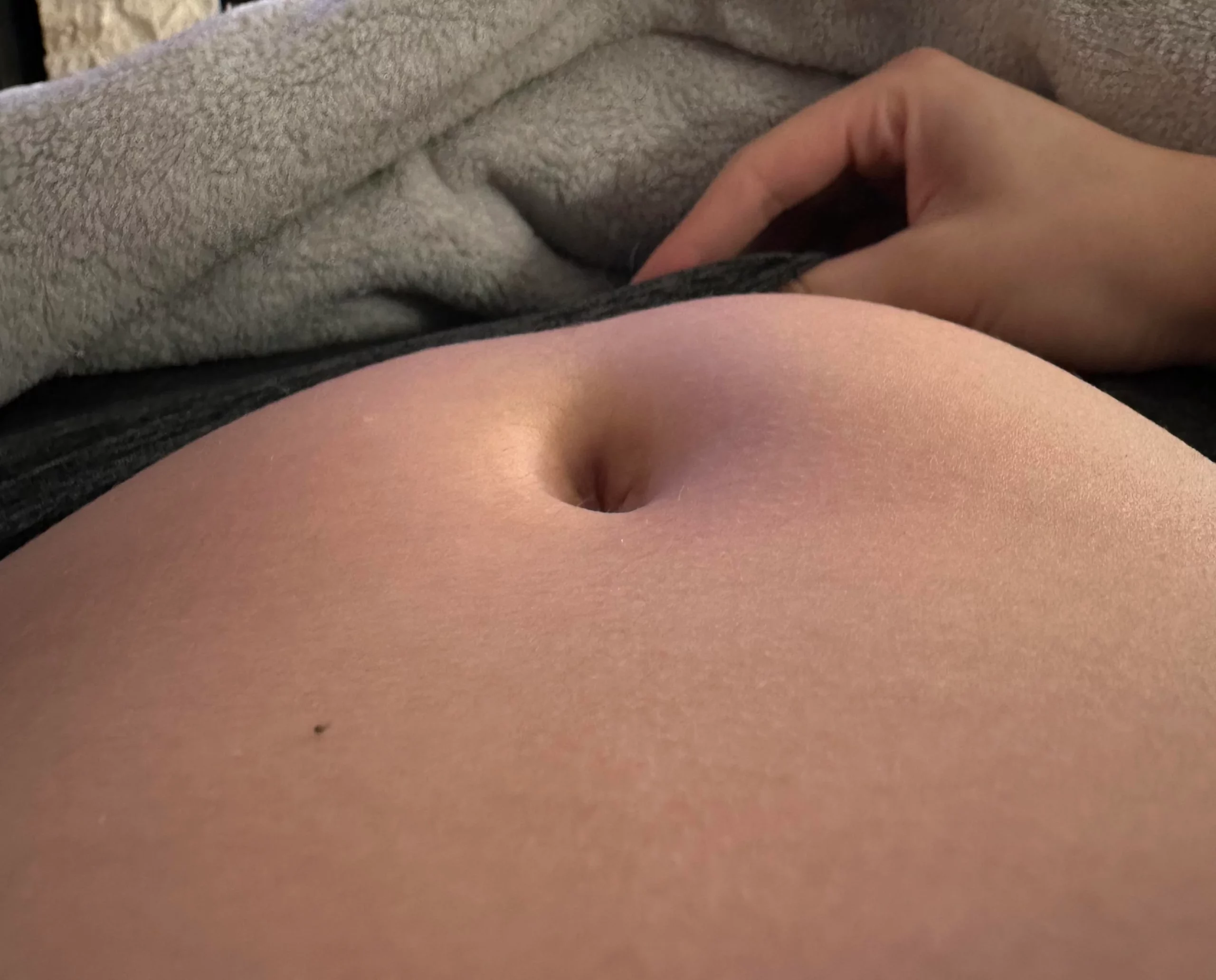
Image source: Reddit
While occasional discomfort can be attributed to various factors such as indigestion or gas, persistent or recurrent abdominal pain could indicate underlying issues. Conditions like gastritis, irritable bowel syndrome (IBS), or even more serious concerns such as appendicitis or gastrointestinal disorders may be at play.
12. Or, persistent constipation

Image source: Reddit
When constipation becomes chronic, it may be a sign of more complex issues that require medical attention. A colonoscopy allows healthcare professionals to directly examine the colon and rectum, providing valuable insights into potential problems such as colorectal cancer, intestinal blockages, or conditions like irritable bowel syndrome (IBS).
13. Your stool is much narrower than it used to be
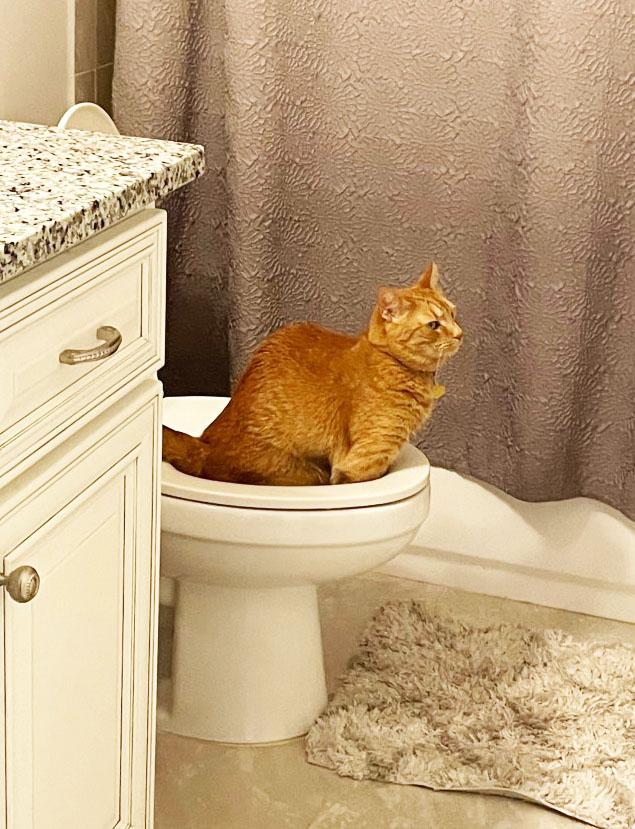
Image source: Reddit
A persistent change in stool width could be associated with conditions affecting the colon, such as colorectal cancer or the presence of polyps. Colorectal cancer, in particular, can cause a narrowing of the stool as it partially obstructs the passage. So, it's super important to get these signs checked out.
14. You frequently feel nauseous
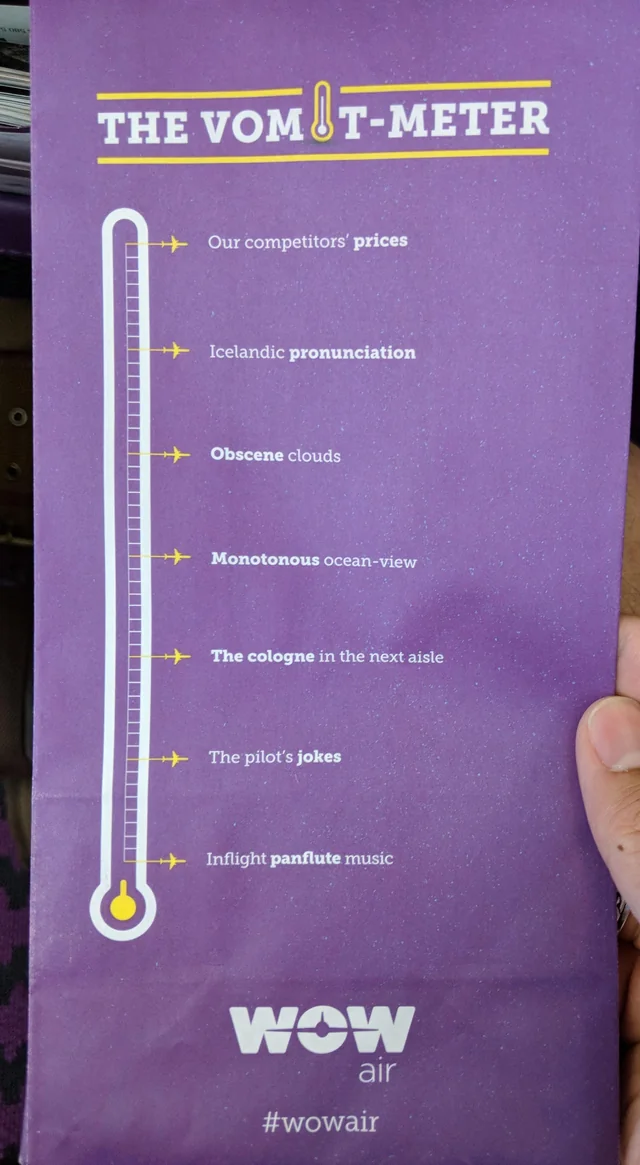
Image source: Reddit
While occasional nausea can be linked to various factors like food sensitivity or stress, recurrent nausea could indicate underlying issues such as gastritis, acid reflux, or even more serious conditions. Ignoring persistent nausea may affect your daily life and overall well-being.
15. You have to release your bowels very frequently

Image source: Reddit
Experiencing a sudden increase in the frequency of bowel movements can be both inconvenient and concerning, and it may be a sign that your digestive system needs attention. If you find yourself needing to poop much more frequently than usual, it's worth considering the possibility of underlying issues!
16. Having dark brown or black-looking stools
 Image source: Reddit
Image source: Reddit
The presence of dark brown or black-looking stools can be a concerning indication that warrants attention. These color changes could suggest bleeding occurring higher up in the digestive tract, potentially in the stomach or upper intestine. The dark coloration is often due to the breakdown of blood in the digestive process.
17. You have persistent pain or aches in your lower back
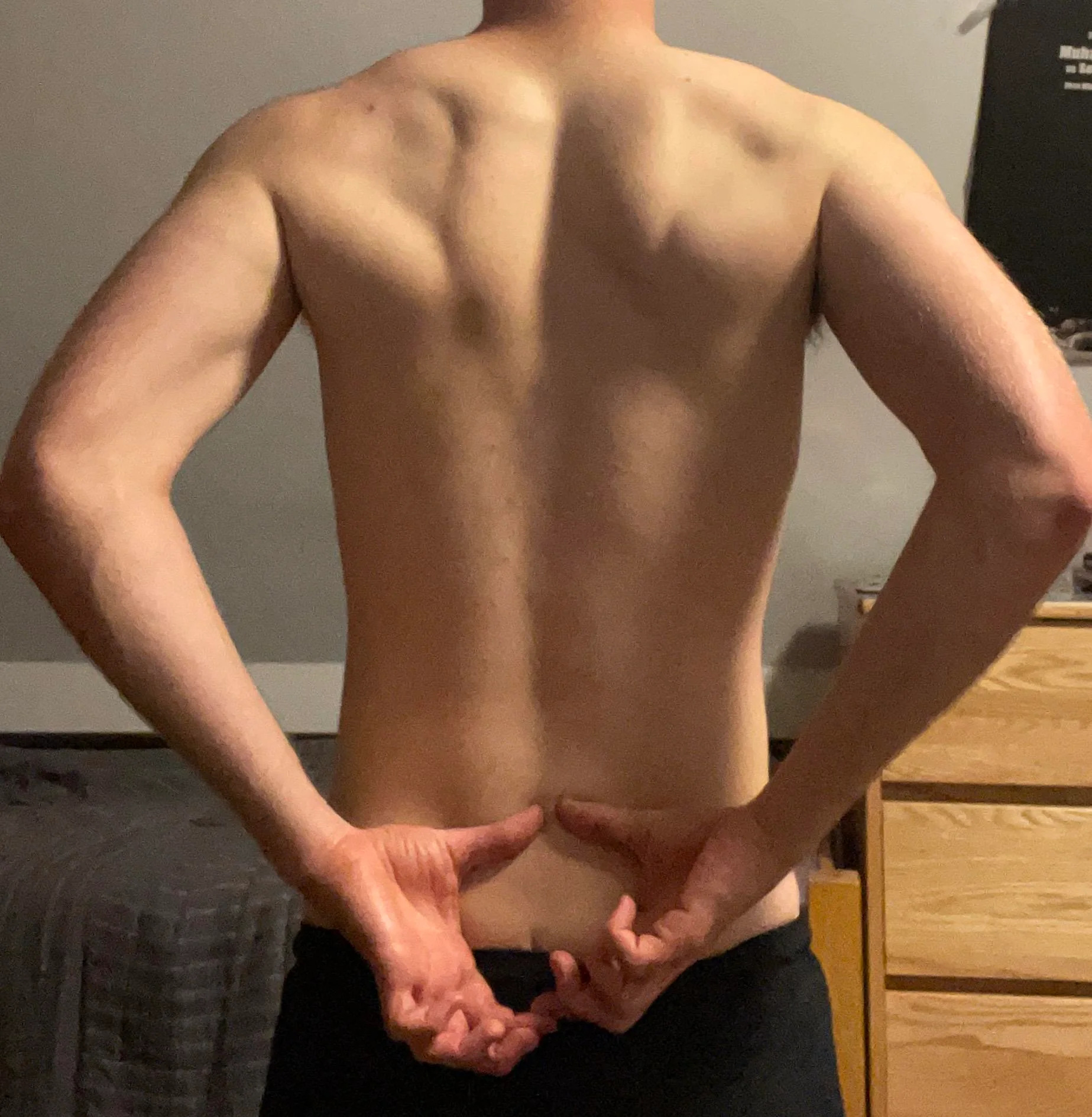
Image source: Reddit
Persistent lower back pain or aching can be a discomfort that shouldn't be ignored, as it may be a sign of underlying issues within the digestive system. When faced with ongoing pain, considering a diagnostic procedure such as a colonoscopy is important to rule out serious conditions like IBD.
18. You experience a sharp, shooting pain in the anal area

Image source: Reddit
Feeling a sharp, shooting pain in the butt is more than just uncomfortable; it's downright worrying. No one wants to deal with that kind of pain, but it's essential to face the issue head-on. This kind of pain can signal a variety of problems, from irritating but manageable issues like hemorrhoids to more serious concerns that might need medical attention.
19. Your appetite has changed massively

Image source: Reddit
Unexpected changes in appetite might be more than just a passing phase. Suppose you find yourself constantly craving different foods or experiencing a sudden loss of appetite. In that case, your body could be signaling an underlying issue, potentially requiring a closer look with a colonoscopy.
20. You've got a family history of colon problems
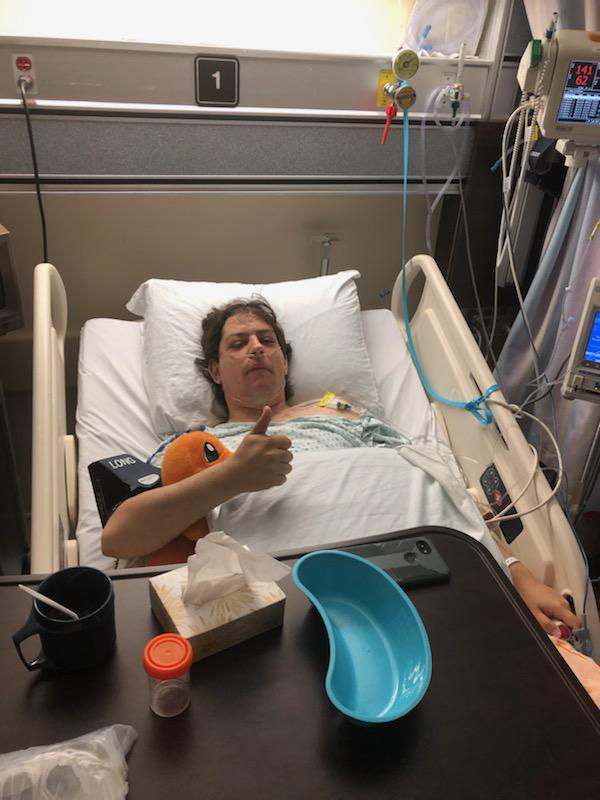
Image source: Reddit
A family history of colon problems, including colorectal cancer or inflammatory bowel diseases, can increase your risk of developing similar issues. Regular colonoscopies are crucial for individuals with a family history, as they allow for early detection and preventive measures, potentially preventing the risk of serious complications.
21. You suffer from persistent indigestion
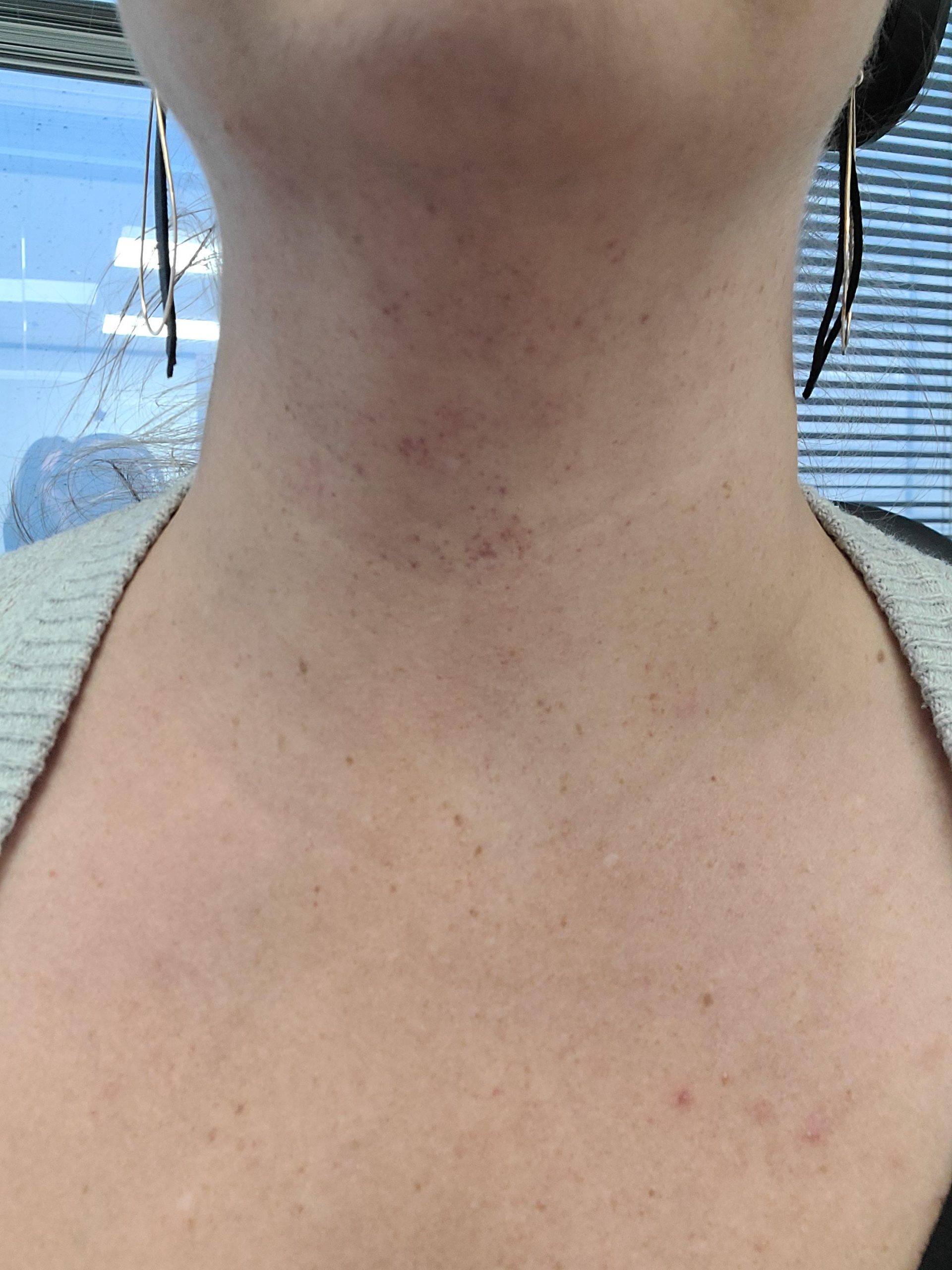
Image source: Reddit
If you find yourself regularly grappling with discomfort, bloating, or that all-too-familiar burning sensation after meals, it's time to consider seeking medical advice. Persistent indigestion could be indicative of various gastrointestinal issues, ranging from acid reflux to more serious conditions.
22. You can't get rid of hiccups

Image source: Reddit
While occasional hiccups are normal, persistent hiccups could be linked to issues such as gastroesophageal reflux disease (GERD) or irritation in the digestive tract. Considering a colonoscopy can help explore potential causes, ensuring a comprehensive understanding of your digestive health and paving the way for effective intervention.
23. You're tired all of the time

Image source: Reddit
Constant fatigue can be a red flag that your body is grappling with underlying issues, potentially within the digestive system. Conditions like inflammatory bowel diseases or malabsorption disorders can lead to nutrient deficiencies, causing persistent tiredness.
24. You're over 50

Image source: Reddit
Approaching or surpassing the age of 50 comes with its own set of health considerations, particularly regarding digestive health. Regular screenings, such as a colonoscopy, become increasingly important for detecting potential issues like colorectal cancer, which becomes more prevalent with age.
25. You get bouts of vomiting with no obvious cause

Image source: Reddit
Encountering sudden bouts of vomiting with no apparent cause can be a perplexing and unsettling experience. These unexplained episodes may signify an underlying issue within the digestive system that demands attention. Instead of dismissing it as a passing inconvenience, consider a thorough examination, such as a colonoscopy.
26. You're anemic

Image source: Reddit
Discovering that you're anemic is an important signal from your body that something might be off with your overall health. Anemia occurs when your red blood cell count or hemoglobin levels are lower than normal, impacting the oxygen-carrying capacity in your blood. But, it can also be a sign to get a colonoscopy!
27. You're experiencing unexplained back pain

Image source: Reddit
Back pain, especially when unexplained and persistent, can sometimes be associated with underlying issues in the abdominal or pelvic region. Colorectal problems, such as tumors or inflammation, may cause referred pain to the back. A colonoscopy can help identify any potential issues within the colon that might be contributing to the discomfort!
28. Your stools are looking very different from how they used to
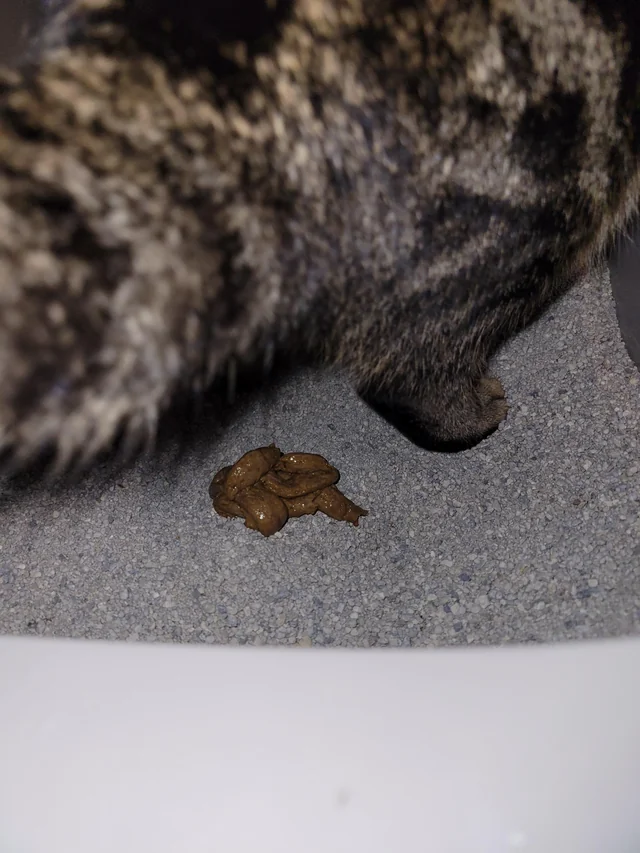 Image source: Reddit
Image source: Reddit
We get it – discussing stool might not be the most glamorous topic, but paying attention to what's happening in the bathroom is crucial. If your stools are straying from the norm, it's time to take note. Changes in color, consistency, or frequency might be a red flag. This isn't just about comfort; it's about ensuring your digestive health is in top shape.
29. There's undigested pieces of food in your stool

Image source: Reddit
Imagine finding undigested bits of your last meal in the toilet bowl – not the most pleasant visual, right? Well, it could be a wake-up call from your body. Undigested pieces of food making an unpleasant and surprising cameo in your stools could signify underlying issues that need attention.
30. Unexplained fevers could be a warning sign
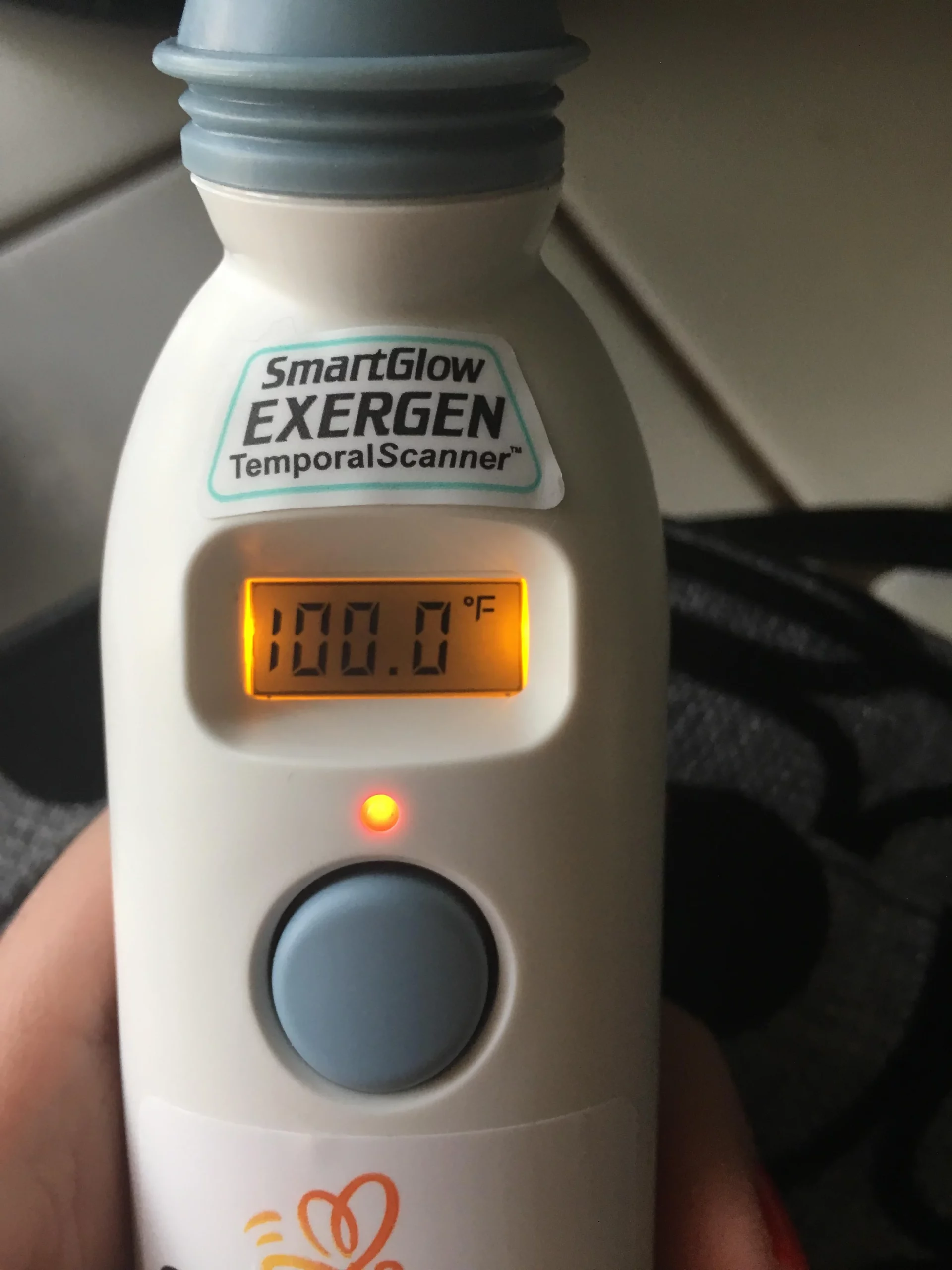
Image source: Reddit
While fevers are typically associated with infections, persistent or recurrent unexplained fevers might signify more complex problems, especially within the digestive system. Conditions such as inflammatory bowel diseases, infections in the gastrointestinal tract, or even colorectal issues could be contributing to these fevers.
31. You feel weak all of the time

Image source: Reddit
Persistent weakness could be more than just a feeling; it might be a symptom connected to your digestive health, emphasizing the importance of considering a colonoscopy. While weakness may not seem directly related to the colon, various gastrointestinal issues, such as chronic inflammation or bleeding, can lead to anemia, contributing to ongoing fatigue.
32. When you go to the toilet, you start sweating

Image source: Reddit
Noticing an onset of sweating while using the toilet can be more than just a momentary discomfort; it might be a signal from your body that something needs attention. Excessive sweating during bowel movements could be linked to various digestive issues, such as gastrointestinal infections, inflammatory bowel diseases, or even issues with gut motility.
33. You have persistent bad breath
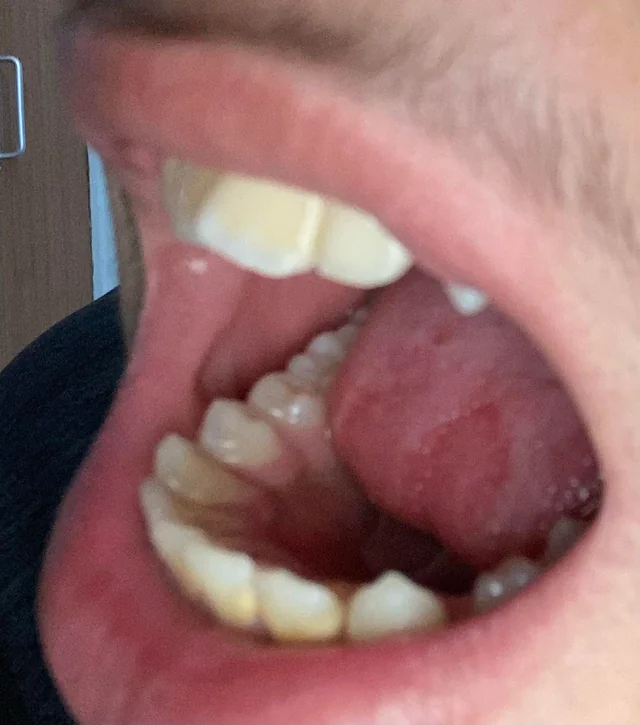
Image source: Reddit
Dealing with persistent bad breath can be socially distressing, but it could also be an indication of underlying digestive concerns. Issues such as gastrointestinal reflux disease (GERD), infections in the digestive tract, or poor digestive health can contribute to chronic bad breath.
34. You have to rush to make it to the toilet in time
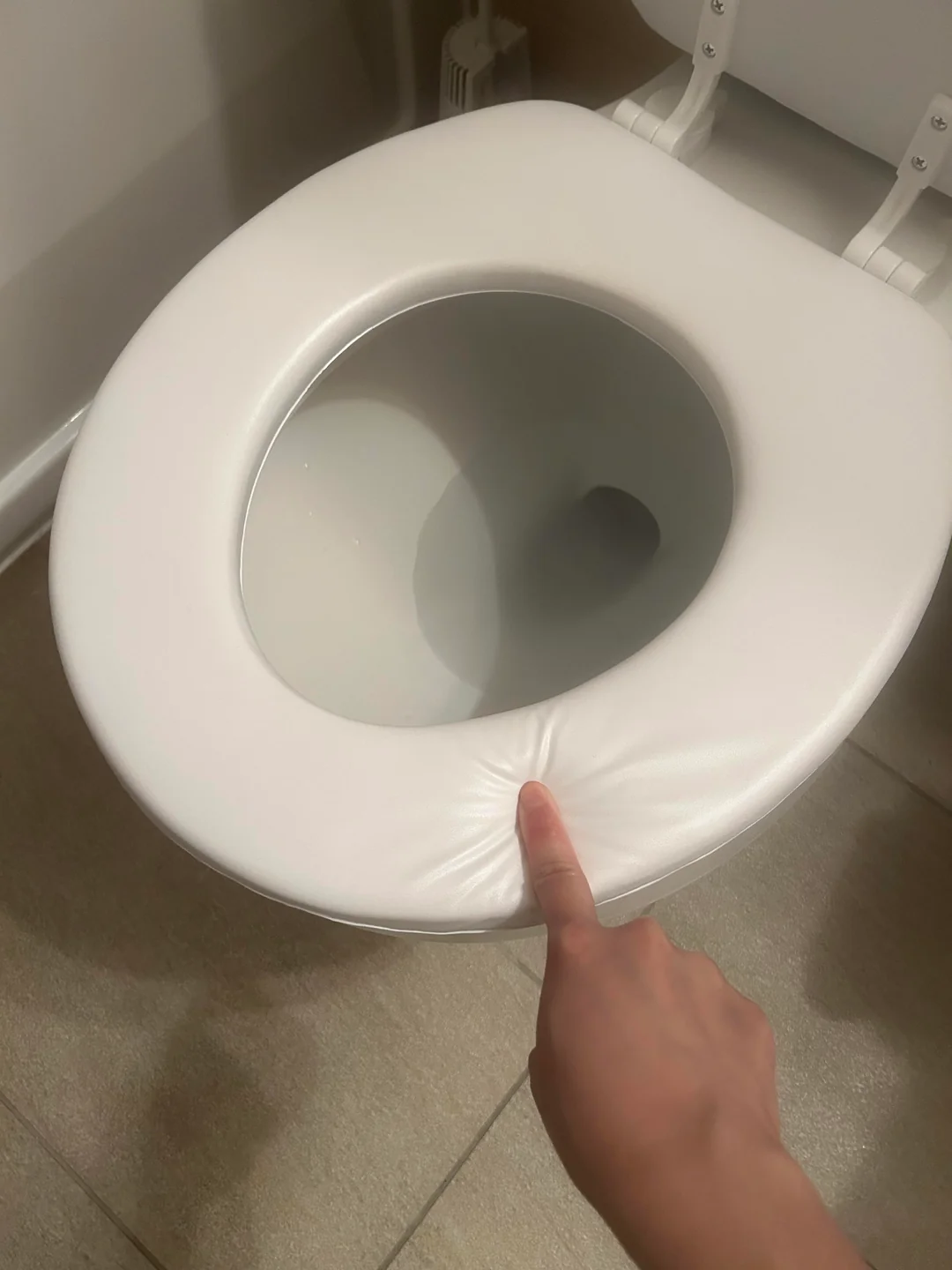
Image source: Reddit
Living with the constant race to the restroom is more than a mere inconvenience; it's a persistent reminder that your digestive system is facing some urgent issues. This urgency could be linked to various conditions, and each mad dash to the toilet is your body's way of saying it needs help.
35. The color of your poop has changed
 Image source: Reddit
Image source: Reddit
Noticing a change in the color of your poop might be a bit surprising, but it's a crucial sign that your digestive system is trying to tell you something. From red or maroon stools signaling potential bleeding to pale or clay-colored stools suggesting problems with bile flow, the color changes provide essential clues about your health!
36. Your teeth are decaying, and it's not linked to oral hygiene
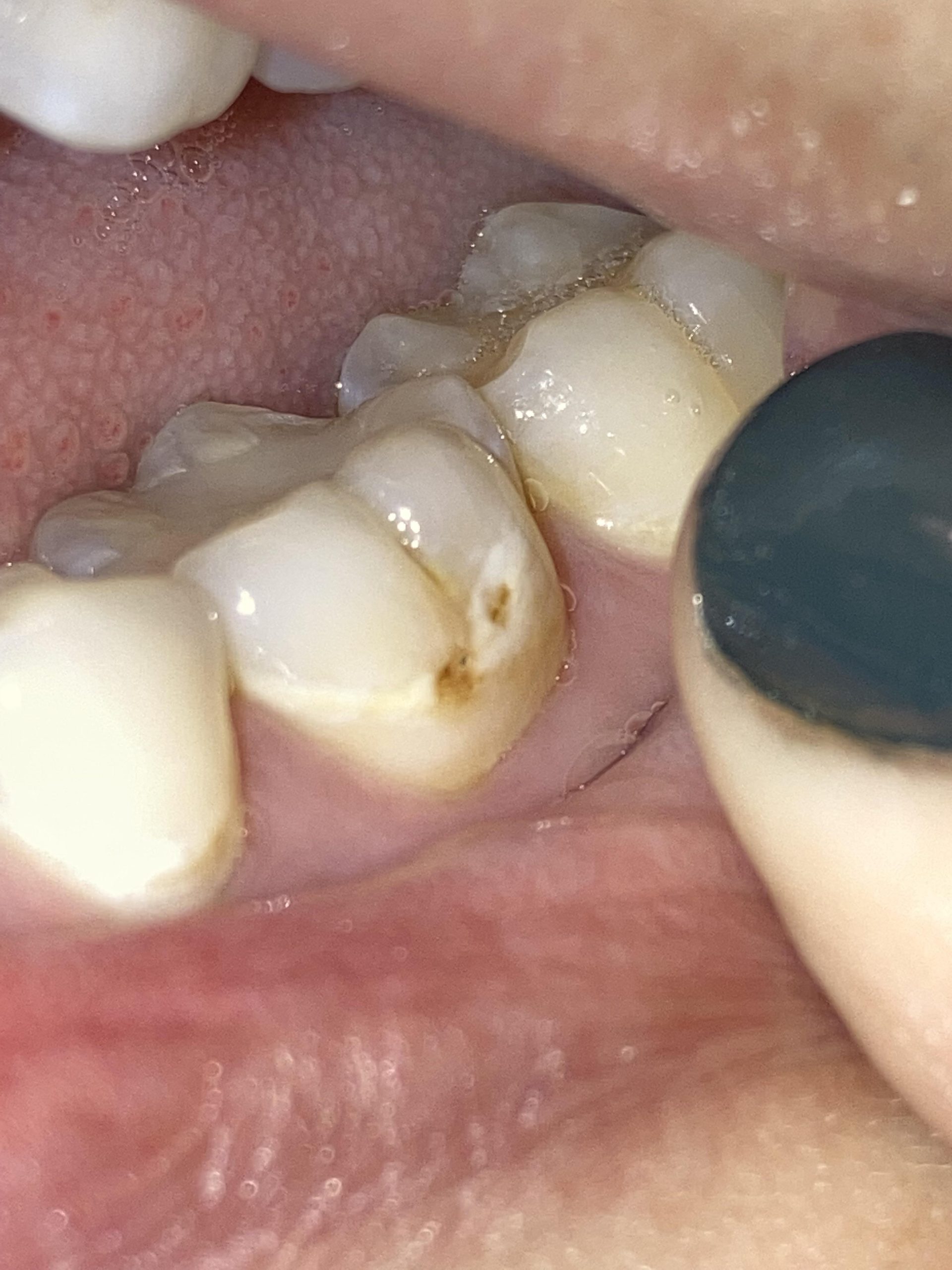
Image source: Reddit
Experiencing tooth decay despite maintaining good oral hygiene practices can be a sign that something deeper may be affecting your dental health. Digestive issues like acid reflux, gastrointestinal disorders, or malabsorption problems can impact the balance of minerals crucial for tooth health.
37. You have skin rashes and you don't know why

Image source: Reddit
Skin conditions may be linked to various factors, including underlying digestive problems. Conditions like celiac disease or inflammatory bowel diseases can manifest with skin issues due to inflammation or nutrient deficiencies. Seeking a comprehensive evaluation, potentially through a colonoscopy, can help uncover the digestive factors contributing to skin rashes.
38. Your joints are sore
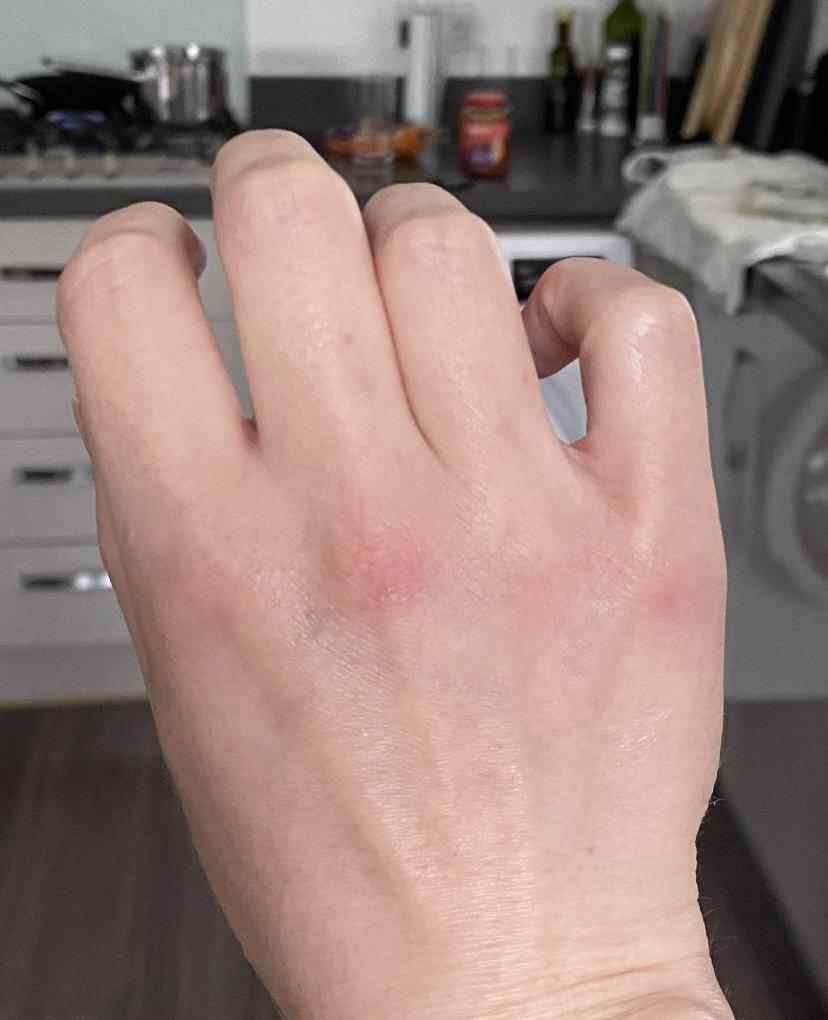
Image source: Reddit
Feeling those achy joints is like your body sending up a flare that something might be up. Whether it's due to inflammation, wear and tear, or an underlying health issue like arthritis, persistent joint soreness deserves a closer look. While joint pain itself may not directly point to colon-related issues, it's a reminder that our bodies often communicate various signals.
39. You feel anxious and depressed and you don't know why

Image source: Reddit
While mental health is complex, it's crucial to recognize the potential connection between your mood and your gut. The gut-brain axis plays a significant role in mental well-being, and disturbances in the gut microbiome or underlying digestive issues can contribute to mood imbalances.
40. You're always feeling tired

Image source: Reddit
Constant fatigue can cast a shadow over your daily life, affecting your ability to engage fully. Beyond the usual culprits like inadequate sleep, persistent tiredness may be linked to digestive health. Conditions such as inflammatory bowel diseases or malabsorption disorders can lead to nutrient deficiencies, impacting energy levels
41. You get dizzy for no reason

Image source: Reddit
Experiencing unexplained dizziness can be more than just a momentary inconvenience; it might be a subtle cue to consider your overall health, including the potential need for a colonoscopy. Dizziness might be one piece of a larger health puzzle, and a colonoscopy can serve as a crucial diagnostic tool.
42. You can't shake off cold-like symptoms

Image source: Reddit
Enduring cold-like symptoms that persist despite your best efforts to shake them off could be an indicator of an underlying issue within your body, possibly linked to your digestive health. Conditions such as chronic infections, inflammation, or even immune system dysregulation might be contributing to these symptoms.
43. You have signs of jaundice

Image source: Reddit
Noticing signs of jaundice, such as yellowing of the skin or eyes, is a visible signal that your liver might be under stress. Jaundice can be linked to various liver and digestive issues, including hepatitis, liver cirrhosis, or bile duct obstruction.
44. Your legs keep swelling

Image source: Reddit
When you're legs keep on swelling, it suggests that something is up! Issues within the digestive system, such as liver disease or venous insufficiency, can contribute to leg swelling. Timely intervention ensures a more holistic approach to managing leg swelling and maintaining overall well-being.
45. You've got persistent acid reflux
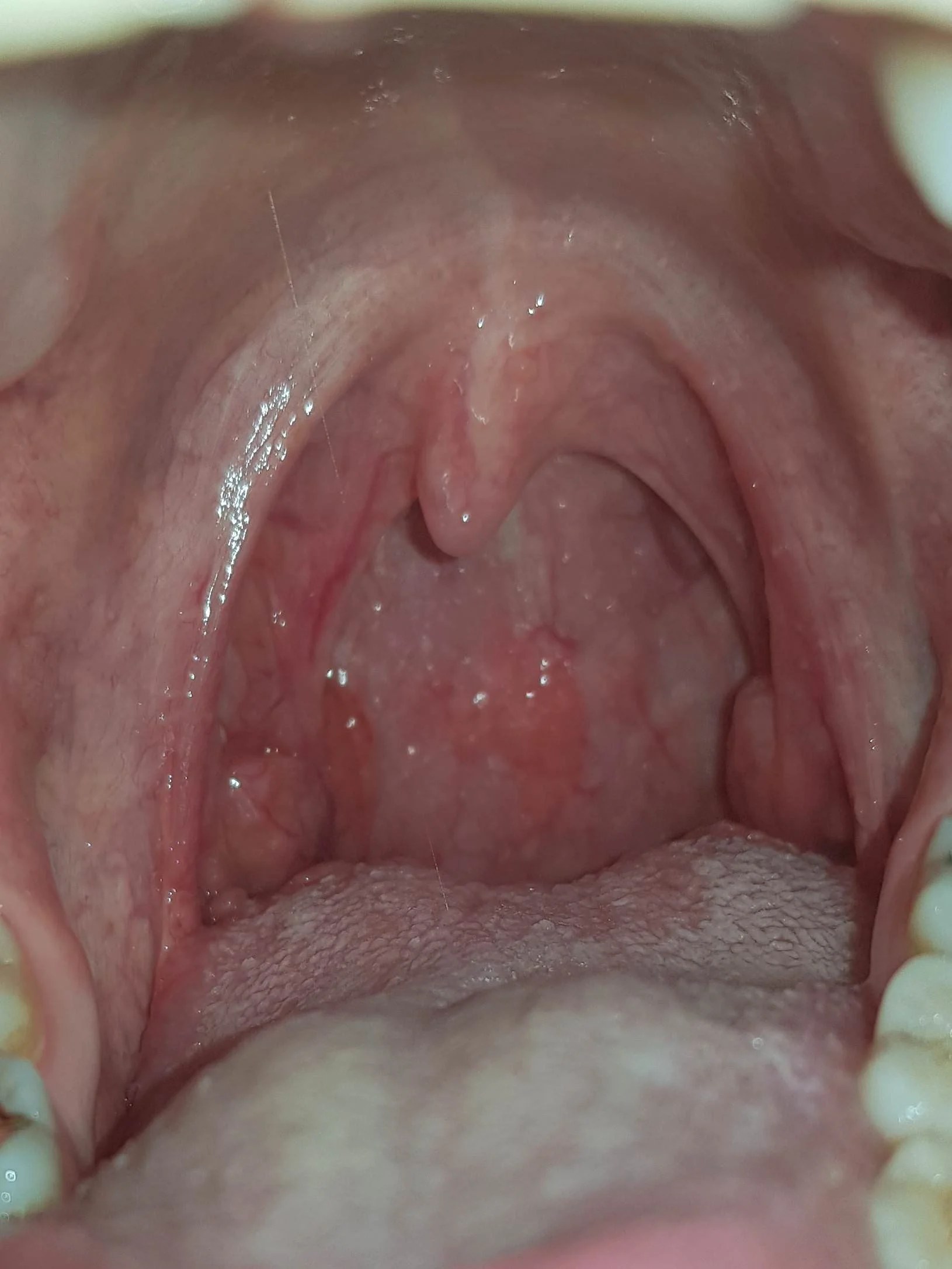
Image source: Reddit
Dealing with constant acid reflux can be annoying, and even more than that, worrying if it doesn't go away. That persistent burning in your chest could be a sign of something more than just indigestion – it might be pointing to a condition called gastroesophageal reflux disease (GERD).
46. Your skin has changed color

Image source: Reddit
Noticing an unexpected change in the color of your skin can be more than a cosmetic concern; it could be an indication of underlying health issues. A shift in skin tone may signal problems with liver function, such as jaundice, which is often associated with issues in the digestive system.
47. Your glands are often swollen, and you don't know why

Image source: Reddit
Persistently swollen glands without an apparent cause can be a perplexing health issue. Swollen lymph nodes are part of your body's immune response, and their enlargement might be linked to infections or inflammatory conditions. However, certain gastrointestinal issues, including those affecting the colon, can also contribute to swollen glands.
48. You feel sick after eating a meal

Image source: Reddit
While occasional discomfort can be attributed to overeating or specific foods, persistent post-meal sickness may indicate underlying issues. Conditions such as gastritis, food intolerances, or even gastrointestinal disorders could be at play and they may need a colonoscopy to be identified.
49. Your body smells bad, even after washing

Image source: Reddit
Unpleasant body odor that persists even after maintaining good personal hygiene may be linked to issues within the digestive system. Conditions like malabsorption or gastrointestinal disorders can affect the way your body processes nutrients, potentially leading to changes in body odor.
50. Your moods are always up and down
 Image source: Reddit
Image source: Reddit
Constant mood swings can sometimes be associated with imbalances in gut health. The gut-brain connection is well-established, and disruptions in the gut microbiome can impact mental well-being. Inflammatory bowel diseases or other gastrointestinal issues might contribute to mood fluctuations.
 Image source: Reddit
Image source: Reddit













 Image source: Reddit
Image source: Reddit










 Image source: Reddit
Image source: Reddit





 Image source: Reddit
Image source: Reddit













 Image source: Reddit
Image source: Reddit